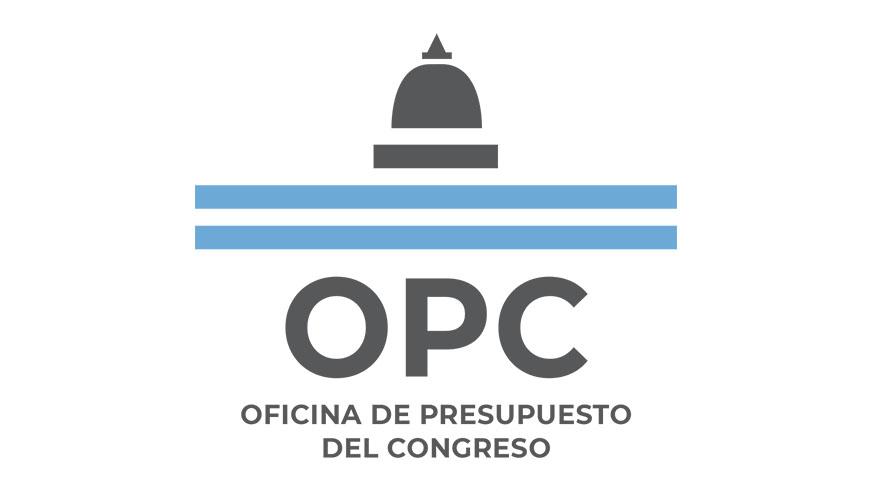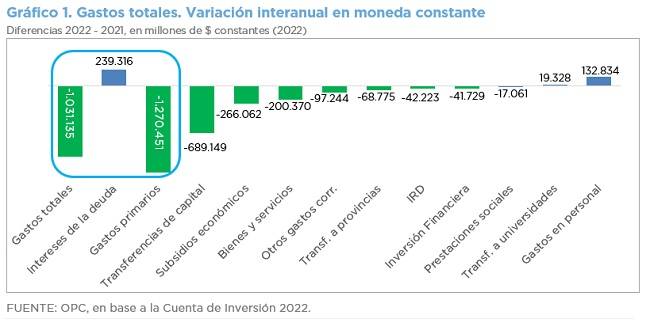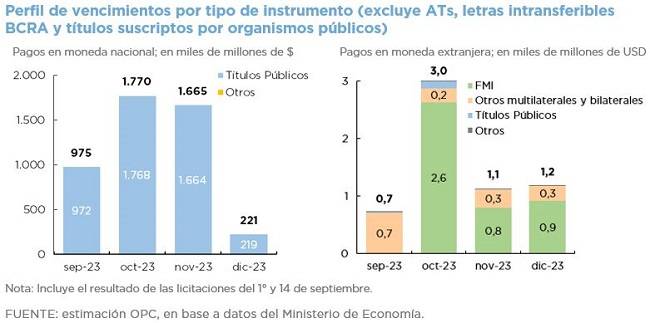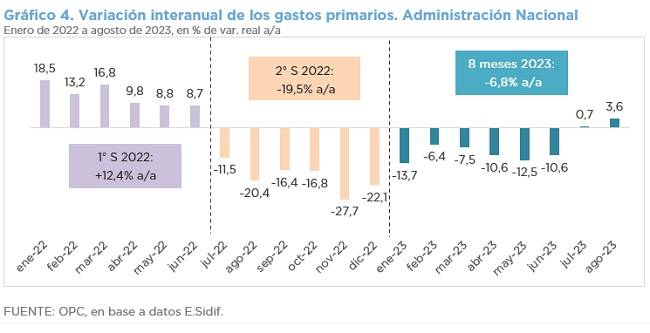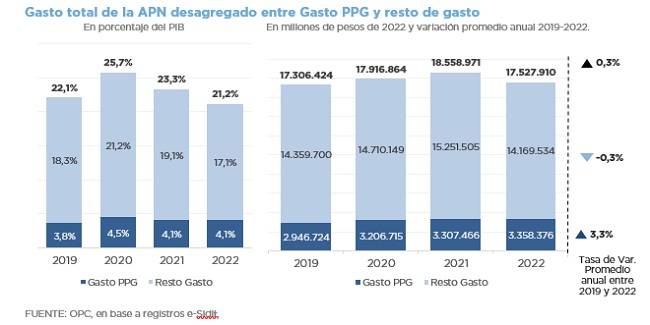
EVOLUTION OF GENDER-RESPONSIVE BUDGET ACTIONS 2019-2022
Expenditure tagged with the initials PPG (for Gender Responsive Budgeting) by the Executive Branch reached in 2022 the equivalent of 19% of the total expenditure of the National Government and 4.1% of GDP.
- The PPG Expenditure expanded by an average of 3.3% in real terms per year between 2019 and 2022, above the evolution of total expenditure (with an average annual growth of 0.3%).
- Both the beneficiaries and the financial allocation of existing programs, such as the Alimentar Card and the Potenciar Trabajo program, grew, and others were created, basically to address gender-based violence (Acompañar program).
- Other actions, such as those included in the Brisa Law and the Gender Identity Law, were given their own budget.
- The Ministry of Social Development went from concentrating 8.0% of total PPG Expenditure in 2019 to 24.6% in 2022.

